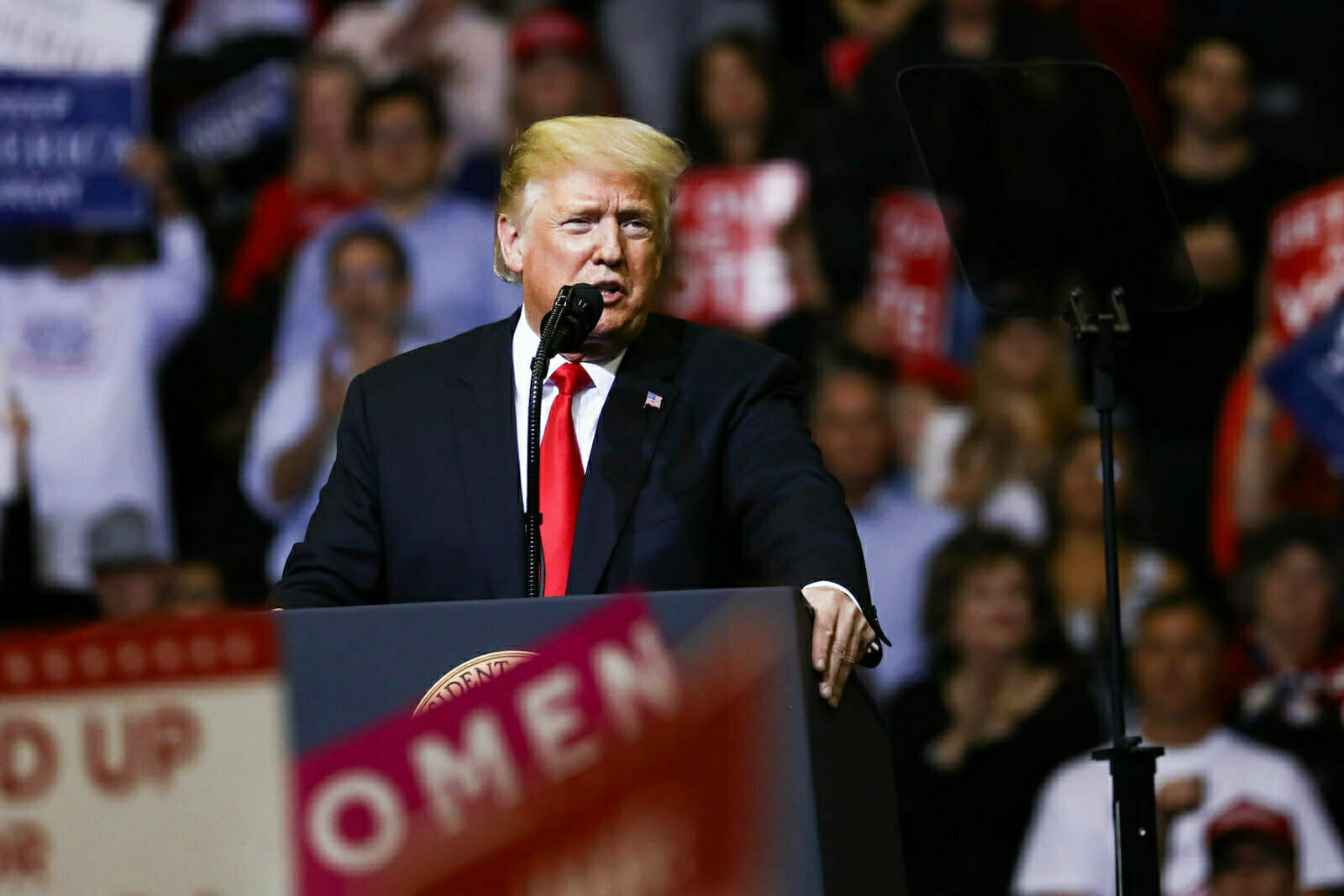
Politics
U.S. Foreign Policy and Religious Exceptionalism in the Trump Era
Local and international observers of American politics doubted the seriousness of Trump’s White House bid even after candidate Donald J. Trump won the presidency. Contrary to Hillary Clinton, his Democratic opponent, who employed a more secular campaign, Trump presented himself as an outspoken “incarnate” of Christian values and embraced religious rhetoric in order to win the White House. Yet, a quick examination of the two candidates’ recent past shows that Senator Clinton’s religious practices, as a Methodist, were closer to Christianity than Trump’s. Brian Kaylor, associate director of Churchnet argues in the book, An Unprecedented Election, that a candidate’s capacity to publicly talk about God and faith matters much more than his/her religious practice. No one understood this better than candidate Trump. His presidency follows the same mobilizing pattern as in the campaign.
Two years after being sworn into office, Trump continues to surprise — without really being surprising, since some may maintain that they have seen it all. In fact, his unpredictability has actually been his predictability, in part because he has kept his (non-presidential) personal attitude as a presidential candidate, which some thought would be different once in the White House. Whether positive or negative, depending on which side of the “wall” one is located, his surprises range from moral issues to controversial topics to policy orientations. Regarding the latter, religion and human rights have not been left behind under the Trump administration. In reality, the first (religion) seems to guide his policies.
Even though human rights principles were initially inspired, in part, by religious beliefs, many tend to separate the two, partly due to the sensitivity of religion. For instance, Article 18 of the Universal Declaration of Human Rights stipulates that “everyone has the right to freedom of…religion; this right includes freedom to change his [or her] religion or belief, either alone or in community with others and in public or private, to manifest his [or her] religion or belief…” While some equate religion to human rights, others prefer to dissociate them in part because of the divisiveness of religion. For secularists, religion should be confined to one’s privacy.
Whether in public or in private, human rights, including the right to believe, needs to be respected. That is, one belief system must not receive preeminence over another belief. Put differently, a belief system should not be categorized nor ranked. Disdaining and dismissing one religious right and belief to the advantage of another one is what I understand as religious exceptionalism. The latter can be explicit or implicit in its practice. For instance, trying to accommodate one religious belief may violate and discriminate against other believers.
Religious beliefs, and Christianity, in particular, have a strong influence in Trump’s foreign policy decisions. Both President Donald Trump and Vice President Mike Pence have openly stated where they stand. Martyn Percy, a priest, and Professor of Theology in England pointed out that “to know Donald’s faith is to understand his politics.” During a world summit organized by Franklin Graham’s organization, Samaritan’s Purse, Vice President Mike Pence declared that “protecting religious freedom is a foreign policy priority of the Trump administration.” While some may support this statement to a certain extent, it does not explain a state’s preference of one religious tradition over another tradition or human rights as some have seen in the Trump administration. President Trump has chosen to overtly use the language of religious preference at will and even before his election. Religion has been instrumental in galvanizing political constituencies. As both a candidate and a president, he has employed a threefold approach to convey his religious beliefs.
First, President Trump has used and promoted Christian rhetoric mainly for political purposes with the specific objective of mobilizing his evangelical base (voters). Not only has he used his official addresses to convey his religious rhetoric, but he has also employed social media (Twitter in particular) for the same purpose. The second is providing religious explanations for his international actions. In other words, President Trump has painted his actions as ordained by God: a city upon the hill and American exceptionalism. Similar to the first approach, this second one is more concerned about public opinion.
Third, Trump’s presidency has sought to dismantle Obama’s religious legacy and replace it with his personal view of religious values. He has implemented this third approach by appointing new policymakers and supporting or opposing governmental religious programs. For instance, the Trump administration has introduced in his cabinet, advisers who support and promote his Christian/evangelical beliefs. Shaun Casey, former US special representative of the office of Religion and Global Affairs pointed out regretfully that “the current administration has systematically dismantled the historical American diplomatic capacity.”
In sum, American religious exceptionalism is not new in addressing religious and human rights concerns. Rather, the Trump presidency has amplified such exceptionalism in following a more open and non-diplomatic pattern which seems to favor its Christian evangelical advocates. The question to be pondered about Trump’s religious-driven actions and policies is: does Donald Trump appeal to Christian and Evangelical voters by pandering to them or by the virtue of anything he does or is?

